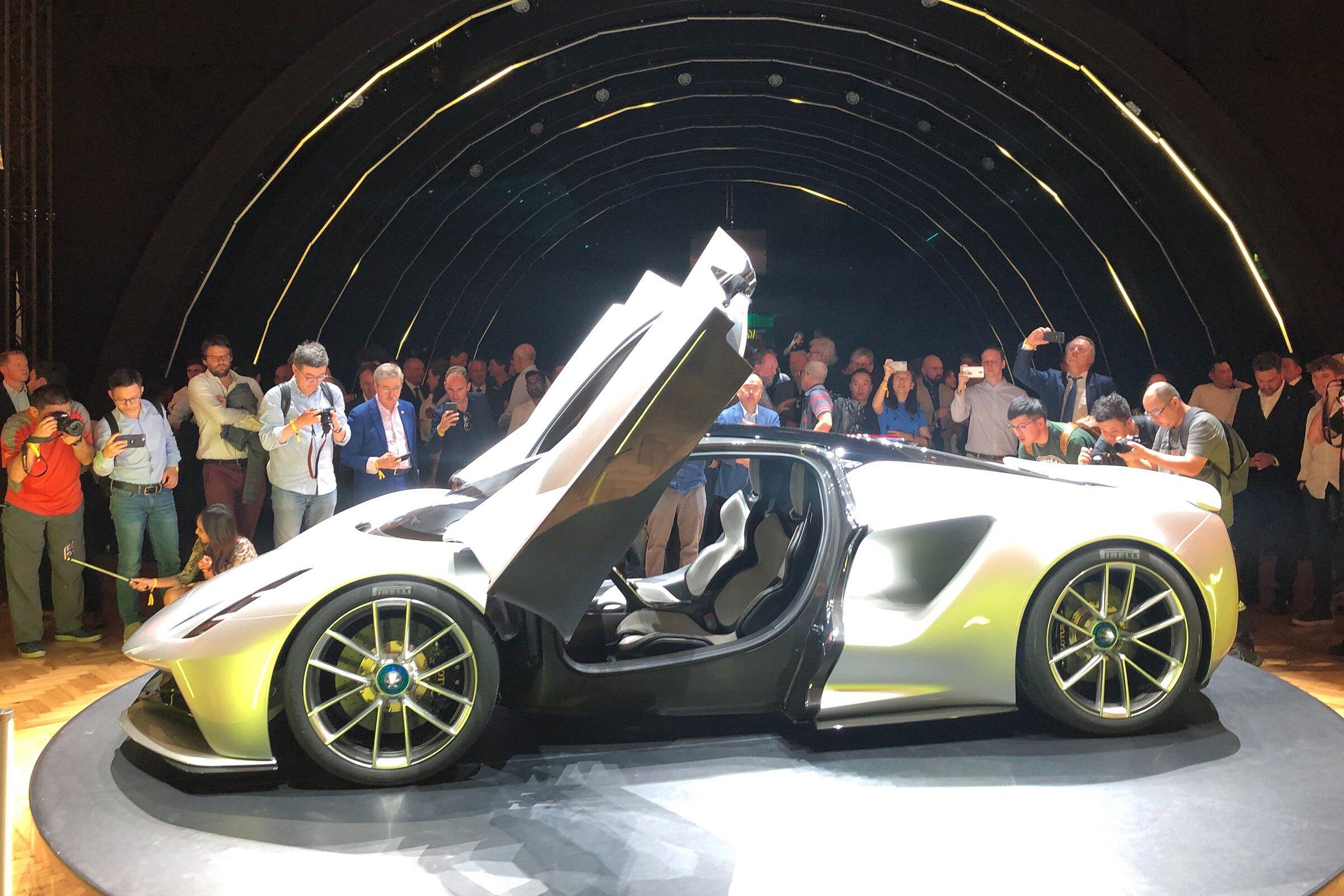Lotus Evija revealed - 1972bhp all-electric hypercar to take on Pininfarina Battista
Lotus’ next phase is about to begin with the Evija hypercar
 Lotus’ next phase is about to begin with the Evija hypercar
Lotus’ next phase is about to begin with the Evija hypercar We’ve been waiting patiently for the next generation of Lotus cars to appear following Chinese automaker Geely’s purchase of the British firm in 2017, and finally there’s electrifying news.
The first all new Lotus to be launched under Geely’s ownership will be the Evija, a bespoke £1.75 million +taxes in the UK (that is Rs 14.9 crore rupees, excluding Indian taxes and duties) all-electric hypercar that will act as a halo model for a whole range of new Lotus models that will eventually lead to replacements for the existing Elise, Evora and Exige models.
The recipe might not sound like a particularly original idea - the electric hypercar market is filling fast with models planned by Pininfarina, Nio and McLaren - technical specifications are still equally impressive.
Performance and powertrain
The Lotus Evija is powered by four electric motors, each with a projected power output of 493bhp and each connected to an individual wheel, making the Evija the first all-wheel drive Lotus. The combined output is 1972bhp, with 1701.5Nm of torque available from zero-rpm - as with all electric cars.
Feeding these four motors is a battery pack mounted behind the seats, which Lotus says is the most power-dense and advanced of its type. The total battery capacity is rated at 70kWh, and will give the Evija a theoretical range of 402km on the WLTP cycle.
Those batteries have also been designed to support up to 800kW charging, a level that would result in a recharge time of the battery pack in as little as 8 minutes, if a charger with that capacity were available. As of now, the highest charging capability allowed on the car is 350kW, which will power-up the Evija’s batteries to 80 per cent in as little as 12 minutes.
Lotus has announced targeted performance figures too, with the 0-100kmph figure of under three-seconds expected, while the 0-300kmph time is an even more impressive sub-9sec. The Achilles heel of electric hypercars is always excessive weight, but Lotus has revealed an expected figure of around 1680kg in the car’s most focused specification, heavy for a Lotus, but still less than many rivals of similar type.
Chassis and suspension
Underpinning the Evija is a full carbonfibre monocoque chassis, constructed by carbonfibre specialist CPC in Modena, Italy. The one-piece moulding not only houses the cabin and connection points for the front and rear subframes, but will also have part of the underbody aero pack moulded straight into the tub’s underside. Suspension is ttraditional in-board coilovers, while the steering system is an electro-hydraulic unit, an encouraging sign considering it would have been a far easier exercise to fit a more usual EPAS system.
Design
The Evija’s styling is typical of a top-tier supercar, with elements borrowed from other historic Lotus models, but reinterpreted for a modern, electric hypercar. Like many cars at this level, aero has played a big role in informing the shape, with large openings in the bodywork facilitating both aero and requisite cooling. It’s arguably dominated by its venturi tunnels that puncture right through the bodywork, slip behind the rear wheels and open out from the tail, helping create downforce without the need for drag-inducing wings and dive planes. There is still an active rear wing, mind, with an integrated drag-reduction system (DRS), much like the one on a Formula 1 car. The graphics are bold, complex and interesting, but perhaps lacking in the innovation or drama of something like a Aston Martin’s Valkyrie.
Inside the Lotus takes a similar design approach, with the Evija looking every bit the modern hypercar, with a driver focused and pared back ambiance offset with plush materials and a delicate use of sculptural carbonfibre. The steering wheel is compact and loaded with controls in much the same way as a Ferrari or Ford GT. Otherwise the only digital interface is in front of the driver, viewable over the top of the small steering wheel for an effect not dissimilar to Peugeot’s i-Cockpit.
If this all sounds very futuristic, it’s because it is - a distinct change from the aged, yet still intrinsically pure, model range that Lotus has offered for over 10 years now. With 130 units destined for production in Hethel from 2020, the Lotus Evija will play the halo product role for the company, but whether it will exhibit the characteristics that have made Lotus’ models so special over its 61-year history remains to be seen.
If this seems like a big ask for a small brand like Lotus, it’s worth remembering Geely has serious form in transforming historic European brands, such as Volvo, from a niche counterpoint into a major premium player. Let’s hope that momentum continues with one of Britain’s most iconic and often innovative sports car companies.


